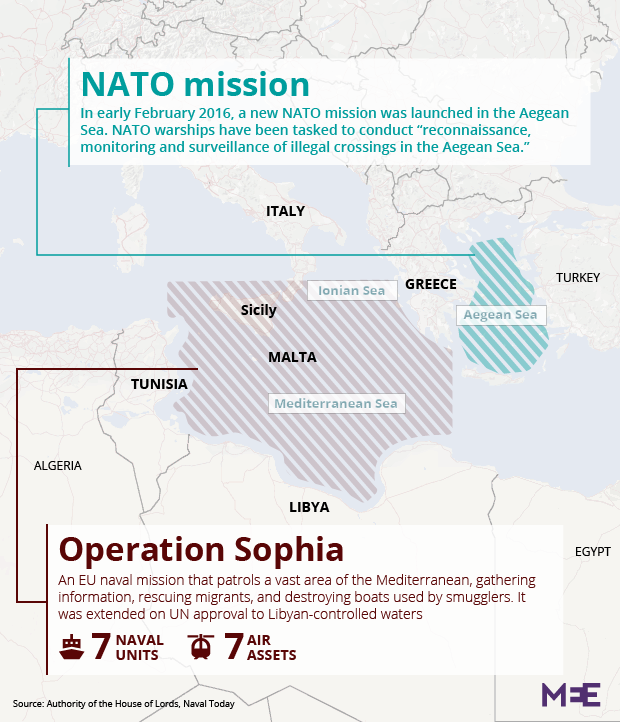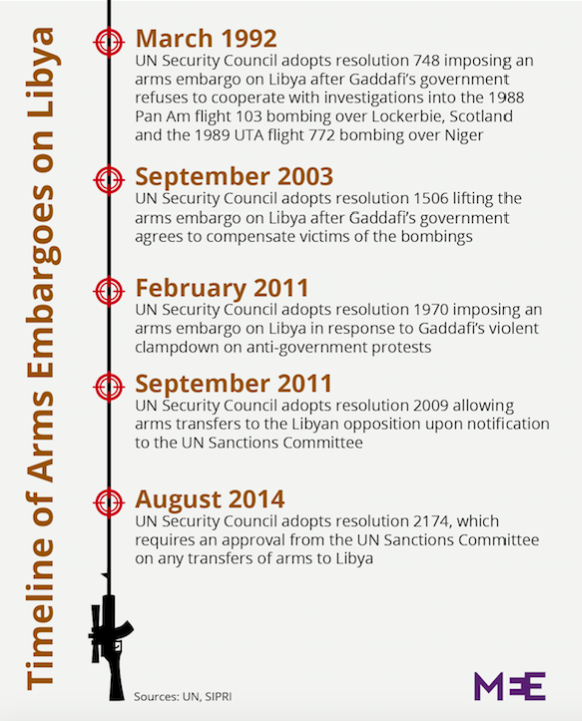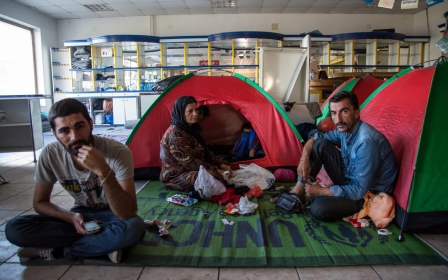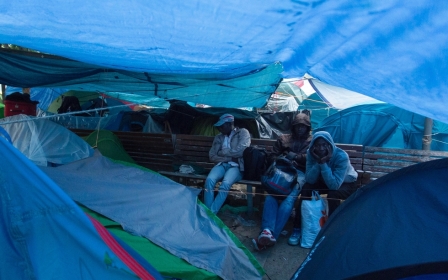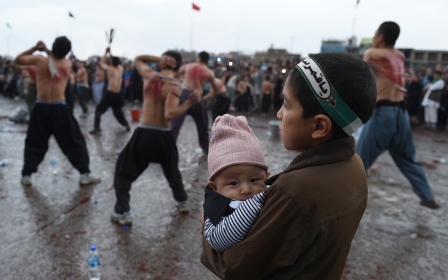UN authorises EU naval operation to enforce Libya arms embargo
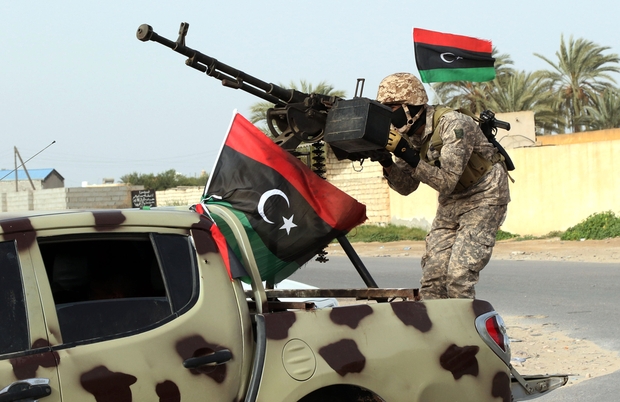
The UN Security Council on Tuesday authorised an EU naval force to enforce the arms embargo on Libya by intercepting ships suspected of carrying weapons.
The council unanimously adopted a resolution drafted by Britain and France that expands the mission of Operation Sophia. There were concerns that Russia and China might abstain in the vote to expand the mission which has been combating migrant-smuggling in the Mediterranean but should now also shore up Tripoli's unity government as it battles the Islamic State (IS) group.
The resolution invokes Chapter 7 of the UN charter, which allows for the use of military force and grants a 12-month mandate to EU vessels to "inspect, without undue delay, on the high seas off the coast of Libya, vessels bound to, or from Libya which they have reasonable grounds to believe are carrying arms or related material to or from Libya".
French Ambassador Francois Delattre, who holds the council's presidency this month, said the measure is a potential "game-changer," by cutting off the arms flow "that feeds the instability" in Libya.
But Russian Deputy Ambassador Vladimir Safronkov warned the measure could sow division by "helping some Libyans against others".
Safronkov recalled that militias loyal to Libyan General Khalifa Haftar, who has refused to back the unity government, were "effectively pushing back" against IS.
"It is inadmissible to ignore this," he told the council.
Operation Sophia's enforcement of an arms embargo would help the UN-backed unity government as it struggles to establish its authority over the entire north African country.
Following the UN vote, EU foreign ministers were expected to formally task Operation Sophia with combating arms smuggling when they meet in Luxembourg on Monday.
Ahead of the vote, Fayez al-Sarraj, the prime minister-designate of the UN-backed unity government said advances by pro-government fighters in the IS stronghold of Sirte should be a model for "a national initiative to fight terrorism".
"We bless the victories of our sons on the front lines... in the fight to liberate Sirte and cleanse it" of IS, he said in a televised statement released on the Facebook page of the Government of National Accord.
Forces allied with his GNA have been fighting since mid-May to oust IS from Sirte, 450 kilometres (280 miles) east of the capital Tripoli.
However, Amnesty International on Tuesday expressed concern about Operation Sophia, saying that closer cooperation with the Libyan government risked “fuelling the rampant ill-treatment and indefinite detention in horrifying conditions” experienced by thousands of refugees and migrants.
“Europe shouldn’t even think about migration cooperation with Libya if it results, directly or indirectly, in such shocking human rights violations,” said Magdalena Mughrabi, the organisation’s interim deputy Middle East and North Africa director.
“The EU has repeatedly shown it is willing to stop refugees and migrants from coming to the continent at almost any cost.”
EU foreign policy chief Federica Mogherini told the council earlier this month that more had to be done to make the “Mediterranean a safer place, starting for our Libyan friends".
Libya descended into chaos during the 2011 uprising against Muammar Gaddafi and the new government of Prime Minister Fayez al-Sarraj set up office in Tripoli only two months ago.
The arms embargo was imposed on Libya in 2011, but UN sanctions monitors have reported shipments from Egypt, Turkey, the United Arab Emirates and Sudan to various factions.
Russian Ambassador Vitaly Churkin last week expressed concerns that the measure could create "suspicion against any party" and negotiations had focused on Moscow's proposed changes, although Russia ultimately did not abstain from the vote.
Libya is awash with weapons, with some 20 million arms in a country of six million people, according to the United Nations.
New MEE newsletter: Jerusalem Dispatch
Sign up to get the latest insights and analysis on Israel-Palestine, alongside Turkey Unpacked and other MEE newsletters
Middle East Eye delivers independent and unrivalled coverage and analysis of the Middle East, North Africa and beyond. To learn more about republishing this content and the associated fees, please fill out this form. More about MEE can be found here.


